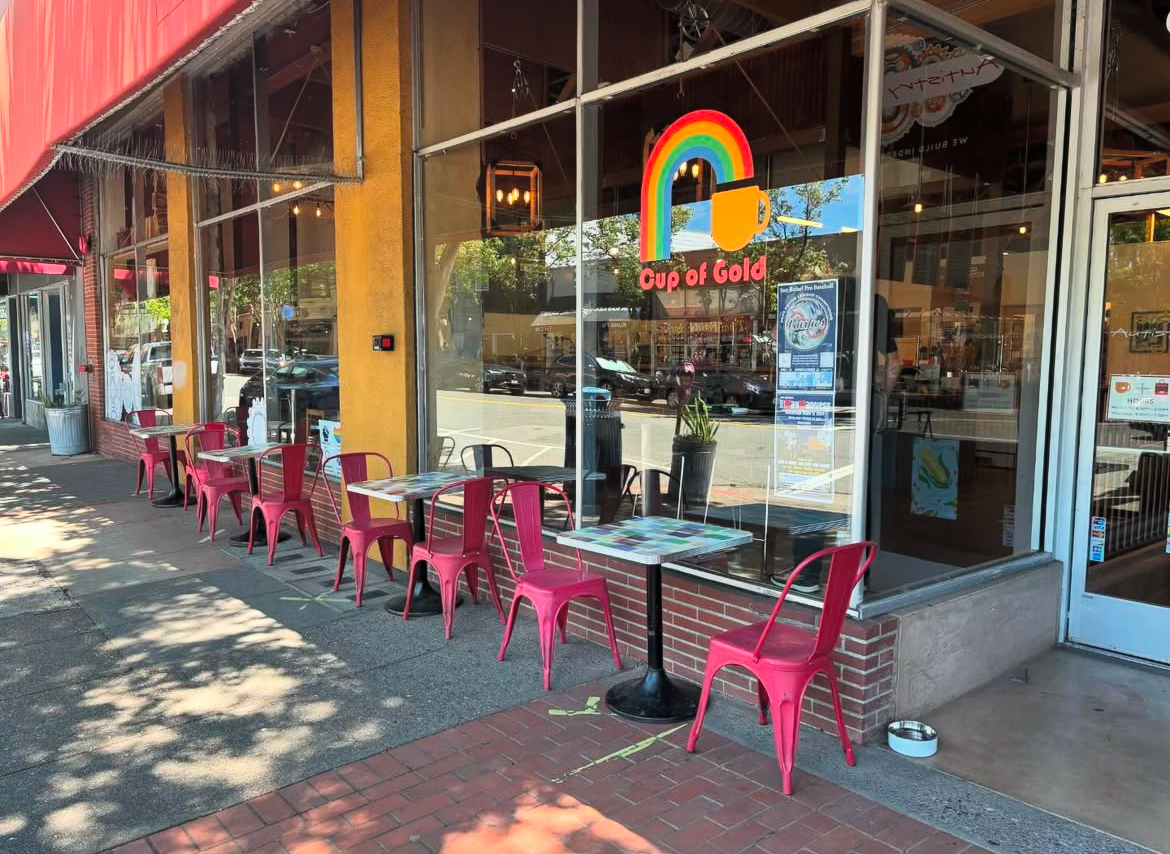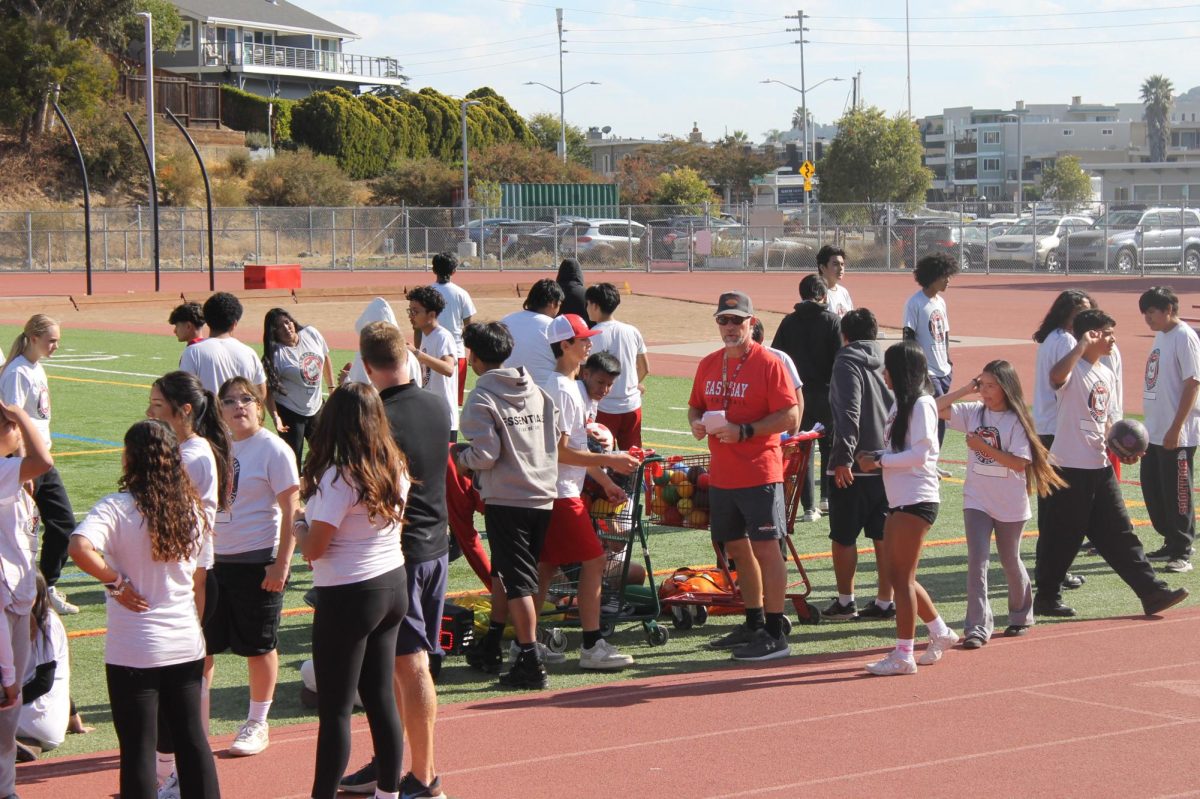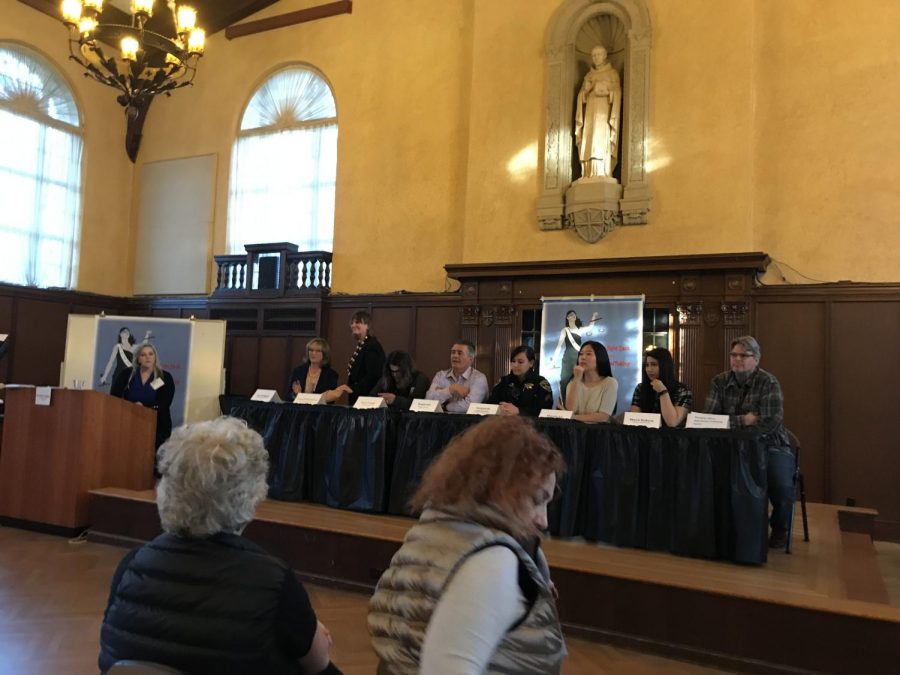Sex Trafficking in Marin County
May 9, 2019
On the Friday of April 19, 2019, San Rafael police Cpl. Lilah Gavlick spotted a car with no front license plate inside a hotel parking lot in the Canal area during his graveyard shift.
Inside the car were three men and one 17 year old girl who was wearing no shoes and a short dress according to San Rafael police Lt. Dan Fink.
It was concluded that the young girl in the car was in fact being trafficked for commercial sex.
Human trafficking is a crime that involves compelling a person to provide labor or services or to engage in commercial sex acts. The industry profits around $150.2 billion and this number continues to grow. California alone has 4 of the 13 FBI-identified trafficking hotspots: Los Angeles, San Diego, San Francisco and Sacramento. Marin County’s Civil Grand Jury stated in June of 2016, “Human sex trafficking is hidden, but thriving in Marin.”
Initially, one may think that trafficking happens only in the “bad” parts of town, but trafficking follows money, and Marin County is full of money.
Deputy District Attorney of Sonoma County, Evanthia Pappas, who specializes in sex crimes and domestic violence, held a forum on March 23, 2019 at Dominican University to educate the community of this ongoing issue.
For an event revolved around adolescents, few turned up. Cpl. Lilah Gavlick, of the San Rafael Police Department, mentioned 4 cases of human trafficking amongst high schoolers in Marin county. Most came from well off homes.
These high schoolers that Cpl. Lilah Gavlick mentioned are real people. Further information was withheld about their school and age seeing that most young teens did not want added attention after the trauma they faced.
This issue is one that is not being taken into account by society as a whole. One sees the stories on the news about young boys and girls being taken into this billion dollar industry, robbed of their innocence and childhood, and yet, nothing changes. It is simply a crazy story they heard about on the news.
This has become such a concern to the state of California that in the past year the state issued an act, AB-1227 Human Trafficking Prevention Education and Training Act, that mandates schools to conduct training for the teachers on how to address this issue with students who become involved with the industry.
This forum took years of planning. It was important to Evanthia Pappas to make this forum one of the most educational, influential, and motivational events as possible. She wanted to make this forum different than all the prior trainings she had attended.
The information given at this event was far from sugar coated. The truth is, children are taken into this industry, either through being manipulated or lured in with money.
Pappas mentioned that students who are isolated and lonely often become vulnerable to being trafficked by what is known as a Romeo Pimp. This is a boyfriend who makes the individual feel really good and pretends to be the only person who loves and cares for them. Essentially, they groom the victim and make the victim dependent of their love. One day, the Romeo Pimp asks the victim to, “do something for me.” They reason that this favor would bring in a lot of money and is necessary because they just lost their job, or that it would be cool, or that doing it for them would be an expression of the victims love. This is, more or less, one of the more common ways in which young boys and girls are taken into the industry.
Jackie O’Connor, a senior at Novato high school, expressed, “The fact that it is happening in Marin County, where women walk their dogs on the street and kids play outside is really scary.”
David Mejia, a senior at SRHS, expressed, “As a male it’s [human trafficking in Marin] something I don’t really think about, but it’s something that’s definitely worth addressing… anyone can be a victim.”
When informed of this industry in Marin County, SRHS senior, Kimberly Mazariegos, expressed, “It’s crazy to think that this happens here in my own community.” She added, “It’s scary because not only can it happen in public, but it can happen through social media.”
With today’s adolescents using social media more and more, the territory of human trafficking is able to expand. According to one speaker at the forum, some of the apps traffickers use include Omegle, Yellow, Whisper, Kik, and Instagram.
For many, parents often may feel as though they don’t have control over their rambunctious teens and this lack of control will lead to possible trafficking. Pappas mentioned that parents should strive to raise their kids with strong self-esteem, teaching them that it is okay to say no.
Pappas added that parents can speak with their kids about sharing the passwords to their phone and other electronic devices, as well as to the internet in order to monitor their child’s tone online.
Sex trafficking wouldn’t exist if it wasn’t for the demand of commercial sex. Where there is demand, there will be supply. This industry is only continuing to grow, and for that reason, it is crucial we educate not only the youth, but also the adults on this matter.







































Monica Whooley • May 10, 2019 at 7:38 pm
Dear Helen,
Thank-you for your courageous and honest article which sends light to youth and all of us teachers wanting to know, connect and support.
Nice work!
Monica Whooley